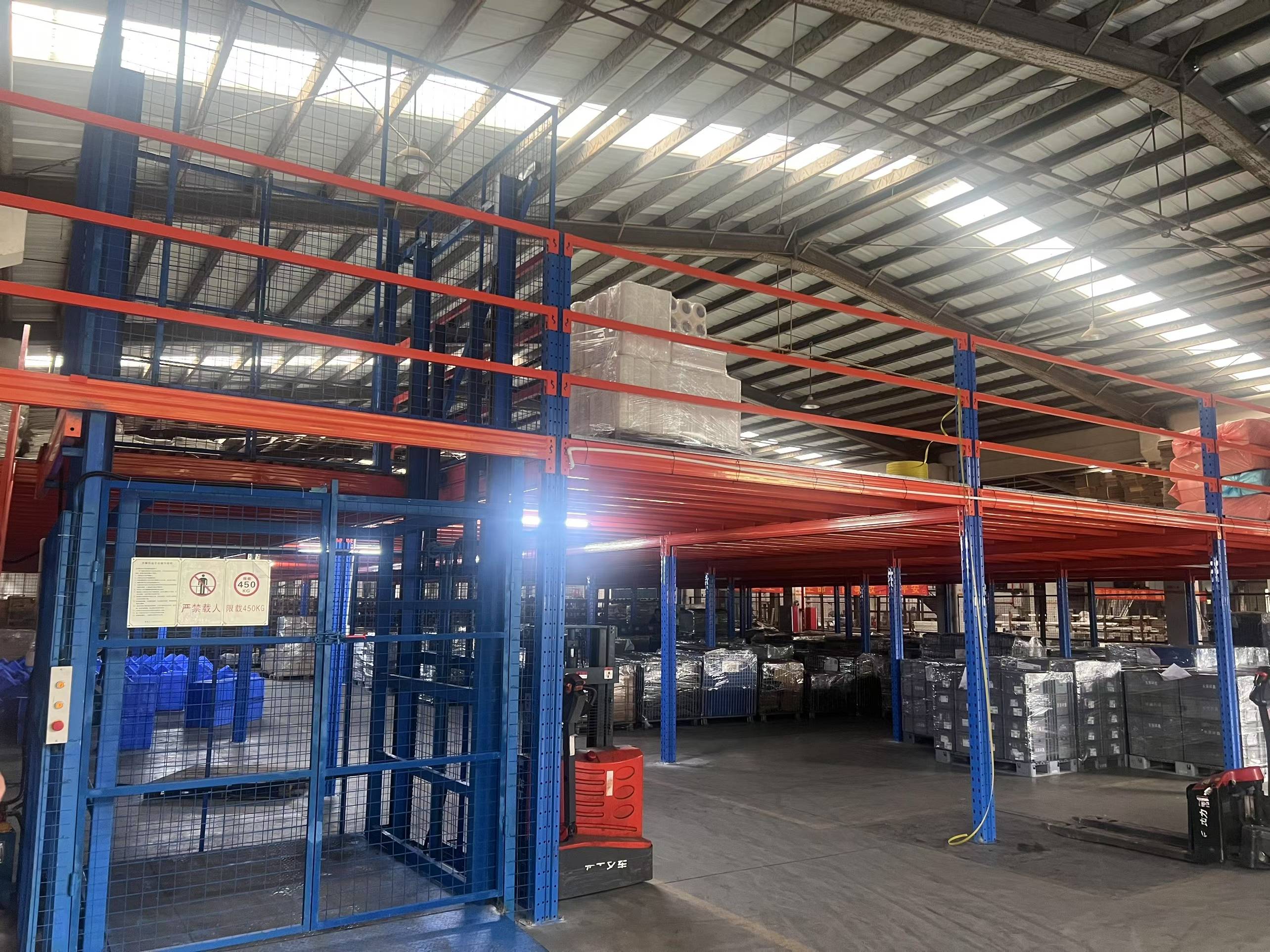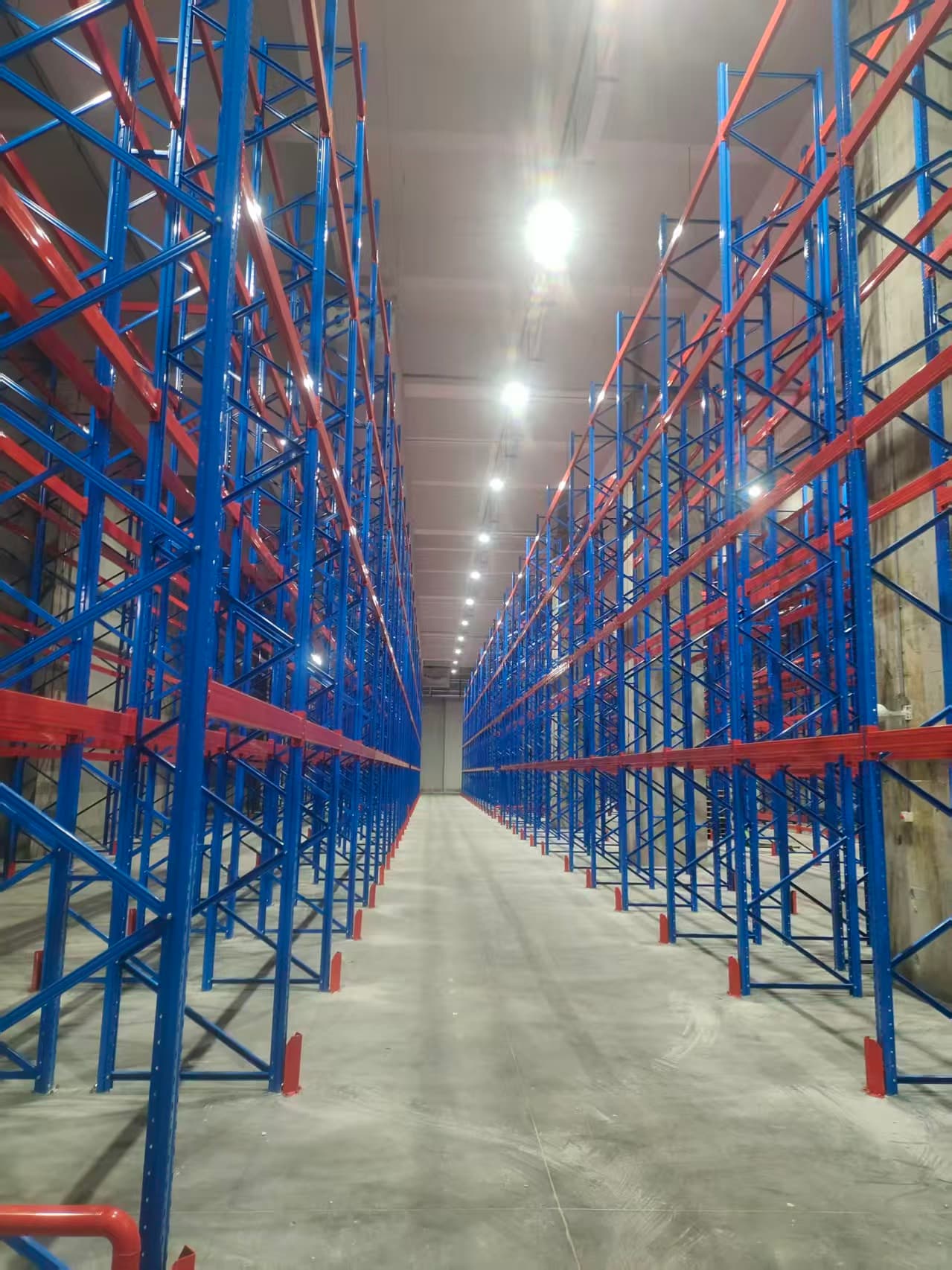In the vast, high-ceilinged world of modern logistics and manufacturing, the unsung hero is often the structural backbone of the entire operation: big industrial racking. These are not simple shelves; they are complex, engineered systems designed to store immense weight, maximize cubic space, and facilitate the rapid movement of goods. For any business involved in storage, distribution, or manufacturing, choosing the right big industrial racking system is a critical decision that impacts efficiency, safety, and the bottom line. This article provides a comprehensive look into these essential structures, exploring their types, benefits, and the common challenges faced when implementing and maintaining them.

When we talk about big industrial racking, we refer to heavy-duty storage systems designed for palletized goods, large parts, or bulky materials in industrial settings like warehouses, distribution centers, and manufacturing plants. Unlike retail shelving, these systems are characterized by their high load capacity, significant height, and robust construction, typically made from fabricated steel. The primary goal of big industrial racking is to utilize vertical space efficiently, transforming a large footprint into a multi-level storage fortress. This vertical storage solution is fundamental to supporting supply chains that demand high-density storage and quick access to inventory.
Not all storage needs are the same, and consequently, several types of big industrial racking have been developed. Selecting the right type depends on factors like the nature of the inventory, budget, available space, and desired picking speed.
Selective Pallet Racking: This is the most common and versatile type of big industrial racking. It features upright frames and horizontal load beams, creating accessible aisles for each pallet. Its main advantage is direct access to every single SKU, making it ideal for warehouses with a high variety of products. However, it requires wider aisles for forklift maneuvering, which can limit storage density.
Drive-In/Drive-Through Racking: Designed for high-density storage of homogeneous products with low SKU variety, this system eliminates aisles by allowing forklifts to drive directly into the rack structure. Drive-in racking has entries on one side (LIFO - Last-In, First-Out), while drive-through has entries on both ends (FIFO - First-In, First-Out). This big industrial racking solution is perfect for storing large quantities of items like beverages or canned goods but offers slower access to individual pallets.
Push-Back Racking: This system operates on a LIFO basis and uses nested carts on slightly inclined rails. When a pallet is placed on the front cart, it pushes the pallets behind it back. When the front pallet is removed, the next one moves forward automatically. Push-back big industrial racking offers good density—typically 2-5 pallets deep—with better selectivity than drive-in systems.
Pallet Flow Racking: A high-density, dynamic system that uses gravity. Pallets are loaded from one end of a slightly sloped rail system and glide to the other end on wheels or rollers. This is a FIFO system, ideal for perishable goods or products with expiration dates. While highly efficient for specific inventory types, it is one of the more complex and expensive forms of big industrial racking.
Cantilever Racking: For storing long, bulky, or irregularly shaped items like timber, pipes, or furniture, cantilever racking is the go-to solution. It features a vertical column with arms that extend outward, providing unobstructed access to the stored materials without the obstruction of front columns.
Installing big industrial racking is not a simple DIY project. It requires meticulous planning and professional engineering. A poorly designed system can lead to catastrophic failures, product damage, and serious safety hazards. Key considerations in the design phase include:
Load Capacity: Calculating the maximum weight each beam and upright can safely support.
Floor Strength: Ensuring the warehouse floor can bear the immense point loads transmitted by the racking, especially when fully loaded.
Seismic and Environmental Factors: In certain regions, the rack design must account for potential seismic activity or high winds if doors are frequently open.
Forklift Traffic: The layout must include adequately sized aisles for the specific type of forklift or narrow-aisle truck used, minimizing the risk of impacts.

Even the best-designed big industrial racking systems can face issues. Awareness of these common problems is the first step toward prevention and maintenance.
1. Damage from Forklift Impacts: This is the most frequent problem in any warehouse. Even minor collisions can bend uprights, damage beams, or knock out safety locks. A damaged component compromises the structural integrity of the entire bay, creating a significant safety risk. Regular inspections are crucial to identify and repair damage promptly.
2. Improper Loading Practices: Exceeding the designated load capacity of a beam or storing unevenly distributed loads is a common and dangerous mistake. Overloading can cause beams to deform or collapse. Similarly, not fully engaging pallets on beams or using damaged pallets can lead to pallet failure and fallen goods.
3. Lack of or Inadequate Safety Protocols: A big industrial racking system is only as safe as the procedures governing its use. Common protocol failures include:
* Not using pallet safety nets or barriers to prevent items from falling.
* Failing to enforce safe stacking heights that don't exceed the rack's capacity or stability.
* Allowing untrained personnel to operate equipment near the racking.
4. Poor Maintenance and Inspection Regimens: Many facilities operate on a "fix it when it breaks" mentality, which is a recipe for disaster. Without a scheduled, formal inspection process conducted by a competent person, minor issues go unnoticed and escalate into major hazards. This includes checking for loose connections, corrosion, and ensuring all safety labels are visible.
5. Inadequate Housekeeping and Fire Safety: Clutter and debris around the base of big industrial racking can prevent proper inspection and may even indicate underlying damage. Furthermore, dense racking can obstruct sprinkler systems if not planned correctly, creating a severe fire hazard. Maintaining clear aisles and ensuring fire protection systems are unimpeded is non-negotiable.
Safety must be the paramount concern when dealing with big industrial racking. Compliance with standards set by organizations like OSHA (Occupational Safety and Health Administration) and using guidelines from the Rack Manufacturers Institute (RMI) is essential. Key safety practices include:
Regular Inspections: Implement a two-tier inspection system: daily visual checks by warehouse staff for obvious damage, and periodic formal inspections by a qualified professional.
Immediate Repairs: Any damaged component should be tagged and taken out of service immediately until it is repaired or replaced by an authorized technician.
Employee Training: All employees who work near or with the racking system should be trained on safe loading practices, how to identify damage, and the importance of reporting issues.
Big industrial racking is far more than just metal beams and frames; it is the critical infrastructure that supports efficient and safe warehouse operations. From the versatile selective rack to the high-density drive-in system, choosing the right type and, more importantly, ensuring its proper design, installation, and maintenance, will determine the long-term success and safety of your facility. By understanding the common problems and adhering to strict safety protocols, businesses can protect their assets, their employees, and their productivity, ensuring their big industrial racking system remains a reliable asset for years to come.
 Wechat
Wechat
 Whatsapp
Whatsapp